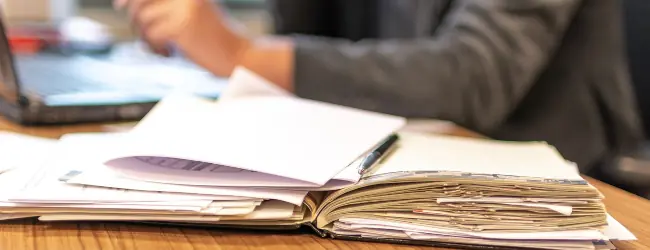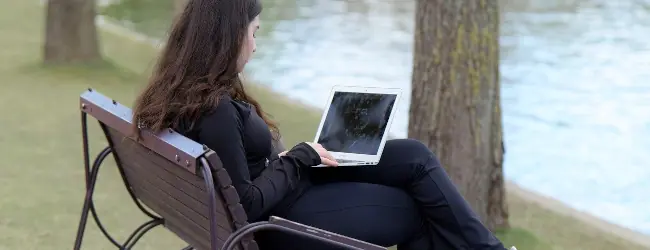In an earlier post, I mentioned the lifestyle of preparing and waiting (this article). I explained that we could solve our current troubles by preparing for future change. Today, I will add another example to make it easier to understand.
How to break through our current situation
Sometimes, we want to break through our current situation. We sometimes stagnate, no matter how hard we try to solve our problems.
That often takes our hopes away. In such a state, we tend to try to avoid even a small loss. That causes more stagnation because we cannot try new things.
That is why we want long-lasting, fundamental hope. If there is hope, we can be energetic, even if we need sacrifices.

However, we sometimes cannot be in such a hopeful state because we don’t know how to change our lives fundamentally.
Today, I will explain the perspective of not trying to solve our current problems. Instead, we focus on our direction toward independence. That might free us from our superficial struggles and give us long-lasting hope.
Why we don’t have to solve our current problems
If we have empathy and creativity, we don’t have to force ourselves to solve our current problems. Moving in our direction in life will solve those problems naturally and automatically.
Let’s look at an example.

Assume we now have many problems that stress us. If we are empathic and creative, they are the difficulties related to social stress, such as doing a disgusting job or something against our will, meeting with people we don’t like, commuting to work, early rising, or lacking freedom.
In this case, trying to solve each problem individually often will not provide a fundamental solution. Even if it makes things a little easier, another stress keeps coming up as long as we are in a stressful environment.
Focusing on fundamental problems
Unless we solve the fundamental problem, stress and troubles will continue, no matter how we overcome the superficial difficulties.
Focusing on basic areas rather than superficial things often gives us hope. In this case, if we head toward independence, we don’t have to solve those individual problems because independence solves all of those problems.

For example, if we can create a job freely, we can act on our own will. In addition, we don’t have to follow the boss’s orders, can avoid meeting with people we don’t like, can go to bed and wake up at any time we want, and can allocate our work and free time as we like.
Of course, this is an extreme example. We often cannot make such an environment happen immediately. However, we can move in that direction. That changes the future and gives us hope.
Efforts that pile up and ones that end up in vain
Some efforts accumulate, and some end up in vain in the future.
We will find that solving those individual problems is inefficient. Those efforts will be wasted in the end. On the other hand, the skills for independence build up our futures.
For example, the creativity to avoid offending the boss will be meaningless if we become independent. On the other hand, creativity for frugality or the cooking skill will be our ability that makes our independence efficient.

In my case, I currently have a noise problem because I live next to a US Navy military base. The exhaust sound of the fighter jets is terrible. I did take measures such as wearing earplugs, but I realized that seclusion in more countryside would solve it. That gave me hope and freed my current stress.
That is an example of the efforts that will end up in vain.
By the way, after that awareness, I realized that the noise didn’t bother me, even though the noisy environment was unchanged. That would be one form of the power of hope. Hope gives us energy.
A method to ignore superficial treatments
To ignore superficial problems, try asking ourselves the following question if we are unsure which way to choose: “Which one is better for independence and which is for dependence?”
If we can discern which is for independence, we can choose the way that solves the fundamental problems. That will give us hope and allow us to accept small losses.

On the other hand, if we don’t know which is better for independence, it means they are superficial problems. In this case, we don’t have to make a decision. We can ignore it or choose randomly as we like.
Conclusion
That is why we don’t have to solve our current problems.
Instead of that, we can focus on our direction toward independence.
That might free us from our superficial struggles and give us long-lasting hope.
Thank you for reading this article. I hope to see you in the next one.


